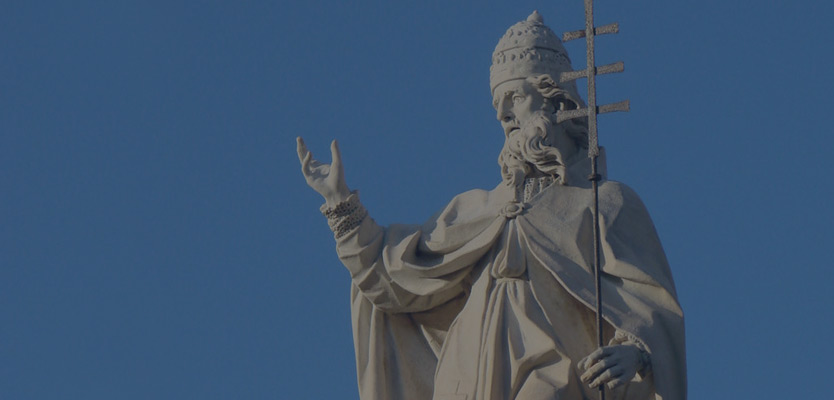On July 28th 2014 Pope Francis visited a Pentecostal church in the city of Caserta, Italy. He went there as a private individual to visit a friend, the Italian pastor Giovanni Traettino, to set an example of ecumenical solidarity. During this visit he asked for forgiveness for the condemnation and the persecution many Pentecostals have suffered from the hands of Catholics in the past.
Catholics reaching out towards Pentecostals in this way is without precedent in history. Therefore it has caused considerable discussion among many Christians. I, too, was asked frequently about my opinion in this matter. Last week I wrote an e-mail to the leaders of the German Association of Pentecostal Churches (BFP). I would like to emphasize certain aspects from this e-mail I deem important in this context.
1.) Generally I believe it is appropriate and good when Christians of different beliefs and convictions emphasize what they have in common and treat each other with respect and appreciation. I reckon this is in line with God’s heart. I also believe that it is meaningful and good for churches of different backgrounds to regularly communicate and exchange thoughts. Among other things this promotes a positive testimony towards the world.
2.) At the end of July Pope Francis visited his friend in Caserta first and foremost as a private individual. During his papacy of little more than a year, time and again he stood out by meeting many people personally and setting examples of charity. These acts I certainly appreciate. Also his request for forgiveness I consider a positive step which is to be received with respect.
3.) Neither the reaction of pastor Giovanni Traettino nor the reactions of others present at the meeting reflect the attitude of Pentecostals in general. In my opinion this is not even possible. Instead of speaking of one worldwide Pentecostal movement, one should rather speak of many Pentecostal and charismatic branches and streams, which in some instances differ quite considerably in their doctrines and expressions of their faith. Thus there is no such thing as one single official who represents all Pentecostals. Issues dealing with ecumenism and the Roman Catholic Church will always be a matter of discussion among Pentecostals.
4.) From my point of view the dialogue with other churches is not meant to lead to the unification of all churches and thereby eliminate organizational and theological differences. This is not the goal of dialogue between churches. Rather, it is vital for an authentic dialogue to present different views to each other in a spirit of mutual appreciation. I consider it very important that in this we neither entrench ourselves nor use terms that repel others.
5.) When the Pope extends his hands towards other Christians he certainly does not have in mind to abandon Catholic teachings and doctrines. Likewise Pentecostals do not relinquish their basic beliefs only because they meet with Catholics for dialogue or discussion. Concerning our movement, the German Association of Pentecostal Churches, I can clearly state that we do have a distinct theological position and conviction for which we confidently stand.
6.) During my life as a leader it has become increasingly important to me to focus on the tasks God has entrusted to me and not to divert my attention to other issues. Only by this I can live effectively and fulfill my destiny. This is also true for us as German Association of Pentecostal Churches. We desire to proclaim the good news to all people that Jesus has obtained grace and forgiveness. Only Jesus is capable of freeing from sin and guilt and of granting eternal life. We want to build churches that are meaningful to modern people who live today.
7.) I cannot estimate to what extent the sign the Pope sent towards the Pentecostals will be of use for future cooperation. History teaches us there can be very good developments despite bad circumstances – and vice versa. Therefore I attentively monitor the current spiritual development. I do not wish to draw conclusions prematurely, but rather I intend to trust God that he remains Lord of history and of all future developments.
